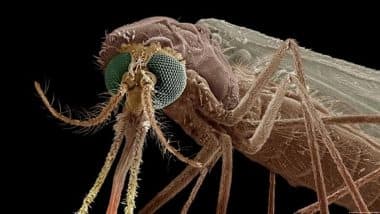Washington DC, [USA] July 18 (ANI): Ankrd16 gene can prevent faulty proteins from causing neurological disorders like Alzheimer's and Parkinson's disease.
In a recent study, researchers found out about this gene.
Scientists know that faulty proteins can cause harmful deposits or "aggregates" in neurological disorders such as Alzheimer's and Parkinson's disease.
Although the causes of these protein deposits remain a mystery, it is known that abnormal aggregates can result when cells fail to transmit proper genetic information to proteins.
Usually, the information transfer from gene to protein is carefully controlled--biologically "proofread" and corrected--to avoid the production of improper proteins.
Researchers found that the Ankrd16 gene rescued specific neurons--called Purkinje cells --that die when proofreading fails.
Without normal levels of Ankrd16, these nerve cells, located in the cerebellum, incorrectly activate the amino acid serine, which is then improperly incorporated into proteins and causes protein aggregation.
"Simplified, you may think of Ankrd16 as acting like a sponge or a 'failsafe' that captures incorrectly activated serine and prevents this amino acid from being improperly incorporated into proteins, which is particularly helpful when the ability of nerve cells to proofread and correct mistakes declines," said a researcher, Ackerman.
The levels of Ankrd16 are normally low in Purkinje cells, making these neurons vulnerable to proofreading defects. Elevating the level of Ankrd16 protects these cells from dying, while removing Ankrd16 from other neurons in mice with a proofreading deficiency caused widespread buildup of abnormal proteins and ultimately neuronal death.
The researchers describe Ankrd16 as a new layer of machinery essential for preventing severe pathologies that arise from defects in proofreading.
The researchers noted that only a few modifier genes of disease mutations such as Ankrd16 have been identified and a modifier-based mechanism for understanding the underlying pathology of neurodegenerative diseases might be a promising route to understand them.
The study appeared in the Nature Journal. (ANI)
(This is an unedited and auto-generated story from Syndicated News feed, LatestLY Staff may not have modified or edited the content body)













 Quickly
Quickly





















